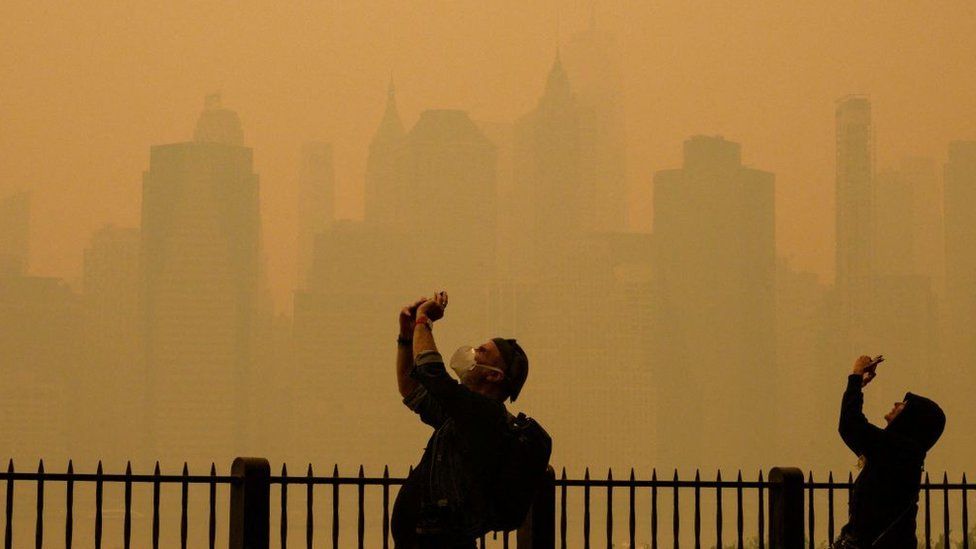On Friday, major US east coast cities are seeing some relief from the smoke brought on by Canadian wildfires as the haze moves south.
For the first time in two days, New York and Washington, DC, saw an improvement in air quality from hazardous levels.
But several southern metropolises, including Louisville, Kentucky, and St. Louis, Missouri, are expected to experience unhealthy air quality.
This week, the smoke has put millions of people on health alert.
There haven't been this much air pollution in east coast cities in decades thanks to the wildfires, which forced the cancellation of outdoor activities and flights in both the US and Canada.
The Canadian Interagency Forest Fire Centre reports that as of Friday, there were still over 400 active wildfires across Canada, including over 200 that are deemed to be out of control.
Residents have been urged by officials to stay indoors as much as possible and to wear masks when going outside, especially for vulnerable populations. Several health problems, including an elevated pulse, chest pain, and inflammation of the eyes, nose, and throat, according to experts, can be brought on by exposure to wildfire smoke.
In a statement on Friday, the National Weather Service stated that smoke from the wildfires would "continue to be transported south by winds into the U. S. resulting in moderate to unhealthy air quality in the Midwest, Ohio Valley, and parts of the Northeast.
The service added, "This weekend should see some improvement.".
The winds will provide relief for a number of cities, including Washington, DC, Philadelphia, and New York, where this week's air quality was significantly worse than that of foreign cities like Lahore, Dhaka, and Hanoi.
The US had sent more than 600 firefighters to Canada to assist in fighting fires since May, according to Mr. Biden, who said this week that he was in contact with Canadian Prime Minister Justin Trudeau.
The worst wildfire season on record is expected, according to Canadian officials.
Wildfire-prone hot, dry weather is more likely as a result of climate change.







